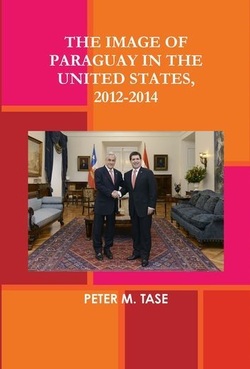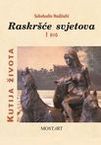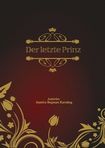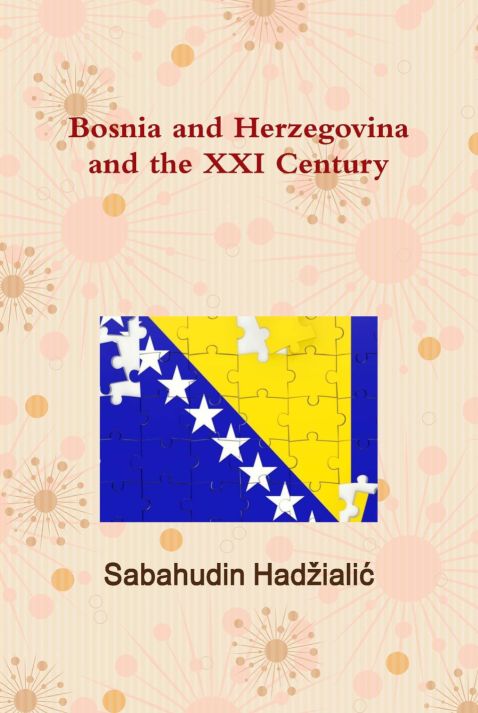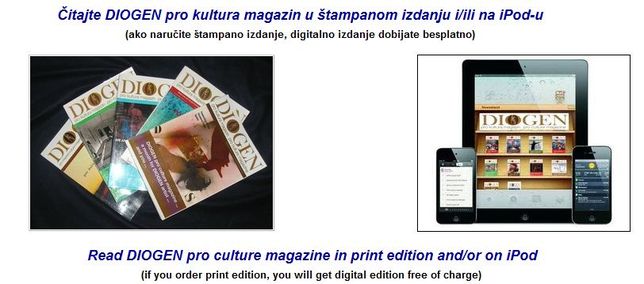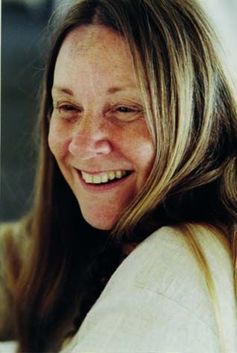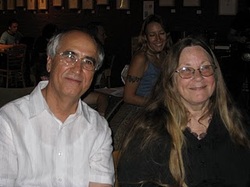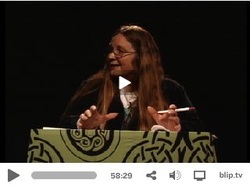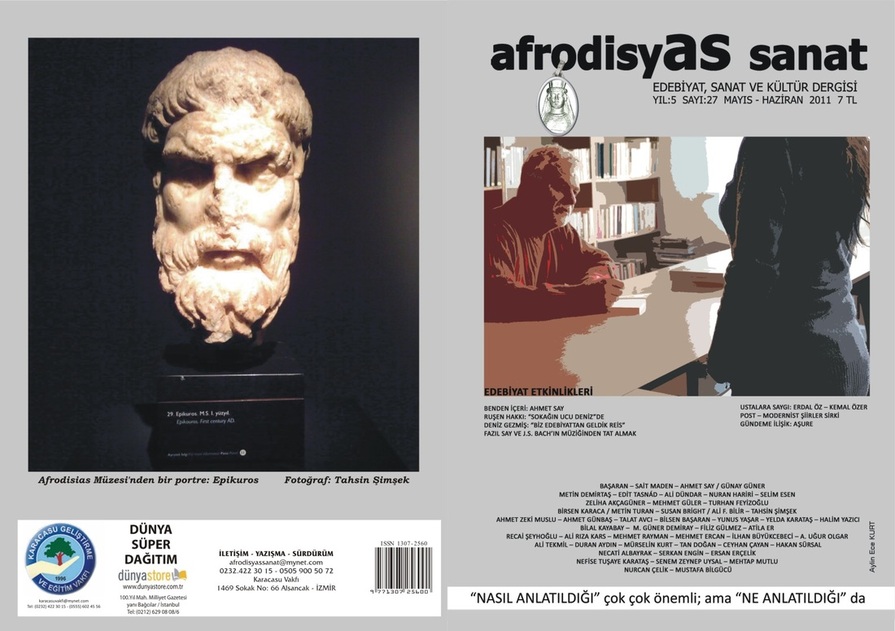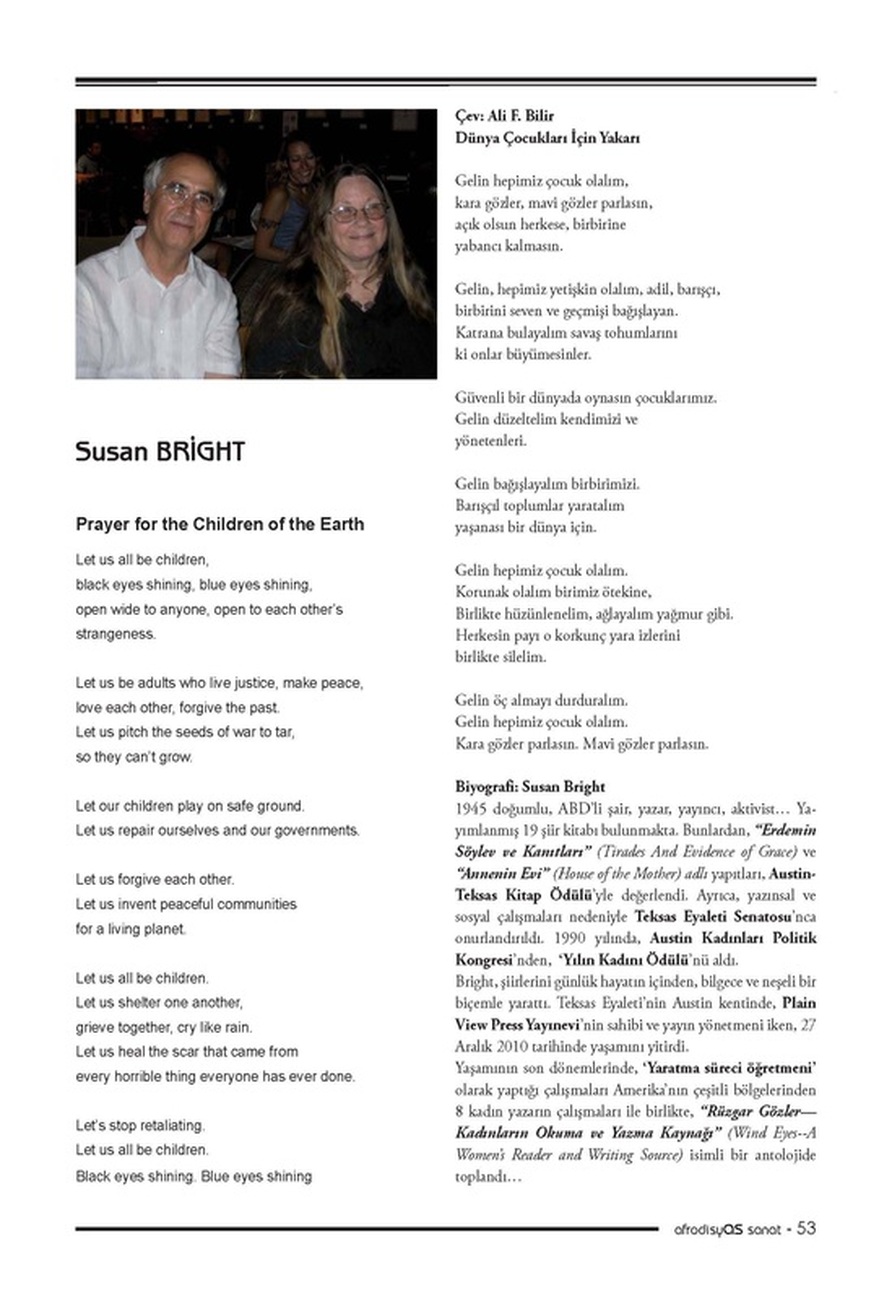|
NA LISTI Od 04.8.2010.g. /
LISTED SINCE August 4th, 2010 among leading European magazines: |
All Rights Reserved
Publishers and owners: Peter Tase and Sabahudin Hadžialić, Whitefish Bay, WI, United States of America MI OBJEDINJUJEMO RAZLIČITOSTI... WE ARE UNIFYING DIVERSITIES |
Narudžba knjiga / Purchasing of the books / Bücher bestellen
Susan Bright, USA
(1945 - 2010)
|
About the Author
Susan Bright is from USA and she is the author of nineteen books of poetry. She is the editor of Plain View Press which since 1975 has published one-hundred-and-fifty books. Her work as a poet, publisher, activist and educator has taken her all over the United States and abroad. In Texas she has received a proclamation from the Senate honoring her literary and community work, and in Austin she received the Woman of the Year Award in 1990 from the Women's Political Caucus. Her most recent book, The Layers o Our Seeing, is a collection of poetry, photographs and essays about peace done in collaboration with photographer Alan Pogue and Middle Eastern journalist, Muna Hamzeh. It is with great sadness that we announce that our dear colleague and founder of Plain View Press passed away on December 29, 2010 after a brief illness. You can visit and read Memorial page: http://www.caringbridge.org/visit/sbright |
|
Ženstvena snaga jednostavnosti
Ženstvenost Susan Bright je očigledna i u njenom poetskom ali i u društvenom angažmanu. Ne može nitko, bio pjesnik ili pjesnikinja biti van društvenih tokova, želio to priznati ili ne. Ako pak to ne priznaje, onda nije pjesniki/pjesnikinja već samo blijedi odsjaj sopstvenih strujanja. Ova američka pjesnikinja, sa iskustvom višeslojnog barda poetika u društvu koje izvrće vrijednosti sa ciljem manipulacije masama per se, i dalje ima svoje poslanje. Poslanje usmjereno društvu dobroga- čineći dobro najviše zbog sebe same. Na taj način ispunjava svoje biće, isprepliću svoje sanje sa realitetom svakodnevnice i sa ciljem da je prilagodi za sebe, ali i za one koji će doći, poslije nje. Njena poetika je samo naočigled jednostavna. Pretpostavljeno mjerljiva unutar bivstvenosti vlastite. Ne, jer njena poetika suština njenog bića. Svaka pjesma ima cilj. Koji bilo ko od nas može čitati na vlastiti način. Moje iščitavanje je bila refleksija Davida koji se mršti spram Golijata koji se smije njegovim nakanama. No, David/Susan je uz pomoć Isusa/Isae znao da alternative sreći i miru nema. Čak i u poeziji. Zbog toga je čitajte. Radi mira u sebi, ali i oko sebe! Riječ urednika Sabahudin Hadžialić |
Feminine power of simplicity
Femininity of Susan Bright is evident in her lyrics and her social engagement.Being a poet is to be part of social trends regardless of the willingness to admit it. Being a poet you can't be be outside of social trends, even if you like to admit it or not. Recognising yourslef as a part of social web is another issue. One could declare it openly or through ones work. However lack of recognition per se is a pale reflection of artist's 'being in the flow' This American poet, with the experience of multilayered bard lyrics in a society that values twists in order to manipulate the masses per se, has her mission. Mission that ripples through the society, doing worthy things for the many and for her. That is how she fulfills her being, her dreams which are intertwined with the reality of everyday life , adapting it for her and for those who will come after her. Susan's lyrics may appear simple on the surface. Even trouble-free. Alas no, her lyrics is the essence of her being. Each poem has a purpose. The purpose is different to each reader. I read them as David, who stood frowning against Goliath laughing at David's intentions. David / Susan with the help of Jesus/Isae knew that there is no alternative to peace and hapiness. Even in poetry. Therefore, her poems should be read. Then you will find peace in youself, and around you. Editor's word Sabahudin Hadzialic |
VILLA AMIRA, Street Ante Starčevića 33,
|
LP vinyl sell from
|
|
Eksluzivno za DIOGEN pro kultura magazin Prevod pjesama sa engleskog jezika: Anya Reich Uklapanje u slagalicu Roditeljstvo Savršeno i blaženo na početku, Naša novorođenčad Ubrzo postanu Deo slagalice, Dok sam iščitavala priče Mojim blizancima Na slagalicu nisam ni pomisljala. Vrpca koja se izvija Iz ženine utrobe i vezuje celokupno društvo se pretvorila u komandnu hijerarhiju čvrsto pripojenu slagalici A mi nesvesni Postadosmo deo te slagalice. Susan Bright iz zbirke ‘Palčić i Džin’ knjiga u pripremi Plain View Press 2010 Molitva za decu majke Zemlje (Hajde da…) Hajde da svi budemo deca Sjajnih crnih očiju, sjajnih plavih očiju Otvorenog pogleda na svet Prihvatajući jedni druge Onakvima kakvi jesmo. Hajde da budemo ljudi koji žive po pravdi i miru vole jedni druge, I ne okreću se prošlosti. Hajde da zatomimo seme rata posuvši ga katranom. Neka se naša deca igraju, bezbedna. Hajde da poboljšamo sebe same i svoje vlade. Hajde da oprostimo jedni drugima. Hajde da izmislimo miroljubive zajednice za živuću planetu. Hajde da svi budemo deca. Hajde da se pazimo, Da zajedno tugujemo, da ronimo suze. Hajde da zacelimo ranu nanesenu od pamtiveka užasima počinitelja pojedinaca. Hajde da prestanemo da se svetimo. Hajde da budemo deca. Sjajnih crnih očiju. Sjajnih plavih očiju. Susan Bright iz zbirke ‘Koprene’, Plain View Press 2001 Raspad Prvo je Zemlja bila ravni disk i ako biste pustili dve lopte različite težine da se skotrljaju niz brdo, one bi stigle u podnožje u isto vreme. Kasnije Zemlja nije bila uopšte ravna, ali lopte bi opet stigle u podnožje u isto vreme. Zemlja je bila centar Svemira, fiksna tačka. Gore je bilo na gore,,.dole je uvek bilo pod našim nogama. Problem je bio – kretanje. Ako se sve kreće, onda bi trebalo da pada prema ili od nečeg drugog. Stvari su počele da se izmiču kontroli. Ajnštan je prodrmao svet. Koliko je sati u liftu koji putuje brzinom svetlosti? pitao se. I tako ja nisam sigurna da li sam prošle subote, dok je padala kiša, pala gore ili dole, samo znam da sam slomila nogu. Sudar je bio očigledan, ali ne i pravac. Kako neko može da kaže da li oni zapadaju ili izlaze iz duga, ljubavi, haosa, na primer, ili iz koje perspektive treba gledati na stvari ? Ko će to presuditi? Sunca se odbijaju jedna od drugih, ali mogu i da se privuku. Bilo bi dobro znati da li će se sve raspasti, ali niko to ne može zasigurno reći. To može da zavisi od toga gde ste kada počnete da obraćate pažnju, ili kako sagledavate stvari, ili da li uopšte možete da sagledate oblik svemira – to je živi dah bez pluća, njegov osećaj biće bez mase, identitet nešto bez samosvesti, život bez forme, nepoznanica, vrtoglavo se sunovračujući – u sta ? Najmanje ćestice se raspadaju i ponovo spajaju, neprestano se komadaju, neprestano se pretvaraju u nešto drugo, raspadajući se i formirajući nove. Postoje porodice elemenata koje naše oko ne uspeva da vidi. One su u Ajnštajnovom liftu, a crveni prsti gospođe Kiri, još uvek vrući od radijacije, ih pretvaraju u nešto drugo, prečišćenije i snažnije nego što mozemo da zamilsimo. Ajnstajn je svirao violinnu. Ona je svirala klavir. Tonovi se čudno spajaju dok se lift vrtoglavo penje, zatim se rasprostire zvuk, pa svetlo a ljudi u liftu zapadaju u san. Svi igraju poing pong osim nekolicine naučnika koji lebde u vazduhu, mlatarajući rukama, zalizanih frizura, povezani žicama za zakrivljeni spectrum. Negde, neko to slika. I kaže , to je to. Susan Bright 1994 iz zbirke ‘Pretposlednja reč’ Plain View Press Isusova pesma Isus sedi u belom kombiju marke ševrolet večeras, sam i odbačen, jer stvari ne idu dobro. On je preuzeo branjene kod četvrtog delenja I igra je krenula nizbrdo. A roditelji kažu, u redu je, Isus je igrao dobro, To je tačno. Čitav tim je igrao dobro- Krenuli su iz zapećka da pobede tim dece dva puta veće od njih- Bogate dece sa druge strane reke loših manira. Ja želim da mu kažem, Nikada nije samo jedna stvar. Uzmi na primer ime – Isus. Može biti Bog ili samo dete koje sedi u kombiju i čeka trenera, Dete koje zovemo Čaj I kažemo, Hajde Čaj, ti to možeš. I može. A drugi put ga zovemo Isa, petnaestogodišnjak sa tri imena, koji je večeras tužan. Ali on će se vratiti sutra, Ili prekostura, I on će pobediti, Ili vežbati sve dok ne pobedi. Ali večeras, pod srebrnom mesečinom, okruglom kao kugla sladoleda Isus sedi, tih i odbačen u trenerovom kombiju – sa sve opremom. Susan Bright, 1994 iz zbirke ‘Pretposlednja reč” Divlji zamah Večeras kometa prolazi blizu zemlje, Skoro da zamrači mesec, Ali mi se nećemo oploditi, Nećemo se pretvoriti u prašinu ili postati bolja bića Oštrih zuba pogodnih za kidanje mesa – I teških kostiju. Vegetacija će preživeti noćas. Neće doći do kolizije, okeani se neće pretvoriti u pustinje. Polarne kape se neće preseliti na Ekvator. Naš centar neće postati naš obrub. Kometa je samo Penušav, žućkasti obris na severnom nebu, Vrckajući repom kroz prozor našeg svemira, to može biti ko zna šta. Probušiće nesto, nekada, ali ne nas, večeras Plamena ptica, čiju temperaturu ne možemo ni da zamislimo, će biti hladnija od nas Dok pod punim mesecom gledamo u gradska svetla- Džes vodi do treće rupe bacač pravi pokret kao da hvata- Ovu malu kometu koja prolazi dovoljno blizu da bi je videli- Snažni zamah, žućkasti zvezdani prah. Neko će završiti večeras sa slomljenom vilicom. Večeras mi nećemo biti svedoci sudara, mi smo večeras pod srećnom zvezdom. Naše sunce se neće ugasiti. Mi nećemo nestati. Pod nanosima mulja ili se okameniti dok se naši udovi pretvaraju u škriljke. Večeras je neko bezbedan. I stara igra loptom koju smo mi izmislili neće biti završena noćas Ovim divljim zamahom i laskavim putem u samo jezgro svemira. Večeras, mi nastavljamo igru, nepoimajući veličinu ili oblik, A u suštini porekla i pravila igre. Slavuj revolucije Zlatogrudi detlić zagnjuri svoj dugi, crni kljun u cvet kaktusa ispunjem vodom. Blago, u prostoru ispunjenom tišinom, On zastaje da bi se napio, jedno obicno biće, sav skockan, u kaputu sa zebra šarom, pitomog lika, blagih očiju, iskrene duše. Videla sam ga kako satima udara glavom u drveni telefonski stub Ispred naše kuće, dum, dum- Kao ja dum, dum, dum, bum, bum, tras, tras, dum, dum- Čitav dan, dan za danom, I naredne nedelje, i nedeljama posle. To mora da mu je hrana, Ili mesto za gnezdo, da se okrepi, da izleže par jaja u rujp, da spava. On pokušava da sruši infrastrukturu. Ja bušim rupe u mrezi, menjam suštinu. Na tome radimo čitav život. Sledeće nedelje, gradska služba donosi novi telefonski stub. Poštar je doneo obaveštenje. doći će u utorak ptica milog izgleda mekog pogleda i očiju boje čokolade. Moraćeš da počneš iz početka, da bušiš kroz crnu smolu, ili da nađeš drugi dom. Imam migrenu I srebrne tačkice mi igraju pred očima. Danas, tvoja zlatna kruna, crveni šešir koji odiše ritmom, siva košulja, Dugačak kljun, oštri nokti, balansiraju tek malo iznad tek rascvetalih mimoza. Uskoro će započeti neumoljivo udaranje. Danas mi donosiš traćak sreće, da li sam malo prestala da se pitam da li je to vredno truda. Susan Bright iz zvbrke ‘Palčić i Džin’ knjiga u pripremi, Plain View Press 2010 Tir (morska luka u Libanu) Tel Halaf Boginja Majka izrađena od terakote, oko 5500-4500 pre Hrista (stanovnistvo oblasti Halafe se bavilo stočarstvom, bez navodnjavanja, I držalo je stoku, ovce i koze. Bili su poznati po proizvodnji posuda od gline i pravili su ženske figure od pečene gline koje su predstavljale majku Boginje Plodnosti). Stari grad, pola kopno, pola ostrvo, je bio dom Fenicana, velikih trgovaca i pronalazača ljubičaste boje spravljene od mediteranskih školjki I dvadeset puta skuplje od zlata. Aleksandar Veliki je želeo Tir I izgradio je nasip od ratnog otpada Spojivši kopno i ostrvo da bi pokorio Kraljicu Mora. Tirinaest godina je Nebukanezar držao kopneni deo grada pod opsadom no Tiračani su našli utočište u izgnanstvu u ostrvskom delu grada. 30,000 hiljada ljudi je Aleksandar prodao u roblje zaslepljen besom zbog nepredane borbe Tiračana za svoju zemlju. U I veku Tir je bio deo Rimske Imperije, pa odatle i akvadukti, i veliki stadion za trku bojnih kola. Tamo se nalaze ostatci Feničanske, Grčke, Rimske i Vizantijske kulture, Muslimanki hramovi i Krstaška katedrala. Feničani su izmislili alphabet da vode zapise ko je kome i šta prodao, a iz toga je nekako nikla poezija I liturgija. Sionski Hrišćani su verovali da je to deo Svete Zemlje, koja kada bude vraćena u celosti, od Sirije do Egipta, će utemeljiti put povratku Isusa Hrista. Cionisti su samo hteli da se zemlja vrati Izraelu. a njeni stanovnici su samo želeli da peku hleb, da love ribu, da gledaju kako se beli puževi uvijaju, dok brodovi dolaze i odlaze, da podizu decu- Oni zasigurno nisu želeli da budu delom stranih imperija. Još od ere božice Majke svako naredno božanstvo je bilo porvrda njihovih htenja. Ona je bila Majka, i Božica, tada i sada – a to je sasvim dovoljno. Susan Bright iz zbirke ‘Palčić i Džin’ Plain View Press 2010 Pobeda Ja koja izbegavam sportske događaje (jedino pratim plivanje na Olimpijadi) sam se nasla zablenuta u Svetski Fudbalski Kup zlatne cipele, kožna lopta ( kombinacija krem kapućino i zlatne boje) – svako polje odvojeno, naravno svetlucavi zlatni trofej koji podseća na simbol plodnosti i kada se sve završi, muškarci ( koji me obaraju sa nogu), ga ljube, skaču, igraju, uzburkana i ustalasana publika peva. Ja jedva da shvatam šta je cilj igre, ali gledam, fascinirana raskošnom dramom. Zinadin Zidan – Le Monde ga zove une icone francaise – glavom udara protivnika tokom drugog produzetka i izbacuju ga sa utakmice. On ima 34 godine, rekao je da je ovo njegova poslednja utakmica, bio je povređen u prvim minutima, i ponovo u drugoj trećini utakmice, možda mu je bola preko glave, možda je namerno minirao igru, možda je želeo da svetu kaže da Francuska bez njega ne može da pobedi. Zašto bi atleta svetskog ranga uradio nešto sa namerom da ga izbace sa finala svetskog prvenstva ? Možda je želeo nešto više nego da pobedi – da se odmori, da se zaceli, da pronađe život van takmičenja, a možda ga je drugi igrač nazvao teroristom. Čak i ako je samo izgubio prisebnost duha – danas, na vrhuncu, o kome jedan čak i fudbaler svetskog ranga može da sanja, Zinadin Zidan je otišao sa terena ne osvrnuvši se na ‘najveću svetsku pobedu’ kao da je bilo nečeg mnogo važnijeg od te pobede, kao da milijarda ljudi može to da zamisli. Dekonstrukcija: Jedna parabola 9/11/04 Mi stojimo lice u lice sa lavom koji sam sebe proždire, Počev od svoje bujne grive i slasnog repa, Svet se pita – gledajući tu neverovatnu i strašnu glad – Šta se dešava ? Učenjaci broje dlake i nokte, kao da će anti-lav slika i prilika prvog izroniti u paralelnoj dimenziji. Drama dekonstrukcije piše ovu priču čije prvo poglavlje je: Ako ne želite da platite radnike ne treba vam državno obrazovanje: U tom slučaju mi zaglupljujemo, zaboravljamo da čitamo Makijavelijevog “Princa” koji je 1500-te godine opisao najbrži način da Princ dođe na vlast Prvo nas zaplaše do srži, a zatim nas lažu, što veća laž, ljudi više u nju veruju. U ovom poglavlju mi šaljemo našu decu u zatvor ili da rade umesto da se školuju. Drugo poglavlje je: Loša vlada je dobra za biznis u kome firma Haliburton, na primer, proizvodi sredstva za masovnu destrukciju, a mi ih posle plaćamo da to ‘poprave’ - Nego ko može da ispravi užase koji se umnožavaju geometrijskom progresijom ? Još jedno poglavlje je: Slabe vlade ne mogu da kontrolišu korporacije. I još jedno: Bog je na našoj strani, a tamo lav jede svoje srce, a zatim se hvališe. I možda ovih dana, ili za pet stotina godina, će se kroz bol roditi neko novo biće i potražiti svoje mesto - Kada mislim o tome, to dođe više kao parada, ili možda karneval, nego kao događaj od velikog značaja. Milioni ljudi izlaze na ulice da započnu Važan posao u vremenu u kojem živimo, a to je da prvo rastave lava koji sam sebe jede, da prekinu sa bezumnim ciklusima osvete Pre nego što rastave ljude na planeti zemlji, i sjajnu planetu kojom hodimo. Susan Bright iz zvbrke ‘Palčić i Džin’ knjiga u pripremi, Plain View Press 2010 |
Falling For the State
and glowing when we begin the work of parenting, our babies quickly fall into the state, hardly what I had in mind when I read stories to my twins. The cord that swirls out of a woman's belly and holds society together has morphed into a line of command attached to the state -- And we fall for it, fall for the state. ©Susan Bright, 2010 (from Tiny and the Giant, forthcoming, Plain View Press 2010) Prayer for the Children of the Earth Let us all be children, black eyes shining, blue eyes shining, open wide to anyone, open to each other's strangeness. Let us be adults who live justice, make peace, love each other, forgive the past. Let us pitch the seeds of war to tar, so they can't grow. Let our children play on safe ground. Let us repair ourselves and our governments. Let us forgive each other. Let us invent peaceful communities for a living planet. Let us all be children. Let us shelter one another, grieve together, cry like rain. Let us heal the scar that came from every horrible thing everyone has ever done. Let's stop retaliating. Let us all be children. black eyes shining. Blue eyes shining. Everything is Falling First the earth was a flat disk and if you rolled two balls of different weights down hill, they would arrive at the same time. Later earth was not flat at all, but the balls would still arrive together. Earth was the center of the universe, a fixed point. Up stayed that way, down was always underneath our feet. The problem was motion. If everything was moving, it had to be falling toward or away from something else. Things started to spin. Einstein began to work the train. What time is it in an elevator traveling at the speed of light? he wondered. So, I’m not sure if I fell up or down last Saturday in the rain, I just know I have a broken foot. Impact was verifiable, if not direction. How can one tell if they are falling in or out of debt, or love, or chaos, for instance, or what perspective to see anything from? Who will be the judge? Suns are racing away from other suns, but they may come back. It’d be good to know if everything’s going to collapse, but no one can really tell. It may depend on where you are when you begin to look, or how you see, or if you see the shape of the universe at all—its living breath who has no lungs, its sentient being who has no mass, the identity of something without self-awareness, life without form, unknowable, a spinning fall to what? The smallest particle is falling in and out of itself, forever breaking, forever turning into something else, shattering, reforming. There are families of elements we aren’t fast enough to see at all. They’re in Einstein’s elevator and Mme. Curie, red fingers still hot with radiation, is turning them into something else, more pure, more powerful than we can imagine. Einstein is playing the violin. Alternately she plays the piano. Notes are strangely pressed together as the elevator spins, then sound spreads out, a train of light, and people on board are going somewhere deep into the dreamtime. Everyone plays table tennis except a few scientists who are swimming in clear air, back-kicking like otters, slick with water, wired to an oblique spectrum. Somewhere, someone takes a picture. Says, This is it. ©Susan Bright, 1996 (from, Next To the Last Word, Plain View Press) Jesus Poem Jesus is sitting in a white Chevy van tonight, silent and dejected, because things aren’t going well. He took over pitching in the fourth inning and the game fell apart. All the parents say, It is OK, Jesús played a good game, and he did. The whole team did-- coming from behind to win against a team of kids twice their size-- rich kids from across the river with poor manners. I want to tell him, It’s never just one thing. Take a name, for instance, Jesus, for instance. It could be God, or just a kid waiting in the coach’s van, a kid we call Chuy, saying, Come on Chuy, You can do it. And he can. And other times we call him Jesse, a fifteen-year-old boy with three names, sad tonight. But he’ll be back tomorrow or the next day, and he’ll win, or practice till he does. But tonight, beneath the slightest sliver of a moon, face-up like a bowl, Jesus is sitting, silent and dejected in the coach’s van— with the equipment. ©Susan Bright, 1994 (from, Next To the Last Word, Plain View Press) Wild Pitch The comet passes close to earth tonight, slips almost through lunar eclipse, but we will not be fertilized, will not anguish to dust or turn to finer creatures with sharp teeth for tearing meat—and heavy bones. Vegetation will hold its own tonight. There won’t be a collision, oceans won’t turn to deserts. Ice caps won’t move to the equator. Our center will not become our rim. The comet is just a fuzzy, yellow presence in the northern sky, tail-wiggling across our window to the universe, which could be anything. It will pierce something, sometime, but not us, not tonight. The Firebird, whose heat we cannot imagine, will be less hot than we are looking up at city lights beneath a full moon-- Jesse leading off to third, the pitcher faking a pick-off-- by this small comet that passes close enough for us to see-- a wild pitch, yellow star fuzz. Someone is going to have a broken jaw. But we will not be pierced tonight, are lucky tonight. Our sun won’t be obscured. We will not vanish beneath layers of silt or petrify as pieces of us are replaced by flint. Tonight somebody’s safe. And the ancient ball game we have created won’t be called tonight by this wild pitch with its flirting journey to the great egg of space. We’ll play on tonight without a clue to the size or form, meaning, origin or function of the game. ©Susan Bright, 1994 (from, Next To the Last Word, Plain View Press) Sweet Bird of the Revolution A Golden-fronted Woodpecker slips his long black beak deep into water from the yellow flower cup of a cactus. Gently, in air empty of clatter, he stops for a drink, an ordinary being all dressed up, zebra coat, sweet faced bird, soft eyes, earnest soul. I have seen him, hour after hour after hour, bang his head against our telephone pole banging, banging, tap, tap -- like me, bang, bang, tap, tap bang, bang, tap, tap -- all day, all day, and the next, and the next. There must be nourishment in it, or a place to nest, regenerate, set a few eggs in a hole, sleep. He is trying to collapse the infrastructure. I drill holes into the grid, change the essence. Our whole lives, we work at it. The public utility will bring another pole next week. The letter carrier brought a card. They'll be here Tuesday sweet faced bird with soft brown eyes. You'll have to start again, poke through bitter black pitch, or find another home. The aura of a migraine scatters silver spots across the way I see. Today, your golden crown, red hat full of rhythm, grey shirt, long beak, pointy claws balance just so above Mimosa bursts. Soon we will return to relentless banging. Today, you bring me such quick joy I almost stop wondering if it's worth it. ©Susan Bright, 1998 (from Tiny and the Giant, forthcoming, Plain View Press 2010) Tyre Tell Halaf Terracotta Mother Goddess, c. 55oo-4500 BC (The Halaf population practiced dry farming (without irrigation) and kept cattle, sheep and goats. Notable among their pottery output, the Halaf communities made distinctive baked clay female figurines that represented the Mother or Fertility Goddess.) An ancient city, half mainland, half island, was the home of the Phoenicians, great traders and makers of a purple dye made from Mediterranean shells worth 20 times as much as gold. Alexander the Great wanted Tyre and built a causeway from the debris of war from mainland to island center to conquer the Queen of the Seas. Nebuchadnezzar laid siege to the land part of the city for thirteen years, but the residents had all gone to the Island for safety. Alexander was so infuriated by Tyrian hard fought defense of their homeland that he sold 30,000 people into slavery. Tyre was part of the Roman Empire in the first century, hence the aqueducts, and a great chariot racing stadium. There are Phonecian, Greek, Roman and Byzantine ruins, Moslem temples, and a Crusader Cathedral. Phonecians invented the alphabet to keep track of who sold what to whom, and somehow poetry and liturgy grew out of that. Christian Zionists believe it is part of the Holy Land which, when restored in total, from Syria to Egypt, to the Jews will make way for the return of Jesus. Zionists just want the land restored to Israel. The inhabitants want to bake bread, fish, watch white sails furl as ships come and go, raise children -- They most certainly don't like being part of a foreign empire. Every deity since the Ancient Mother has justified just that. She was a mother, and a goddess, here and now -- which really is enough. ©Susan Bright, 2006 (from Tiny and the Giant, forthcoming, Plain View Press 2010) Winning I who avoid sport events except for Olympic swimming find myself hooked on world cup soccer gold shoes, a cream and golden leather ball -- the glittering gold phallas when it’s over, gorgeous men kissing it, jumping, dancing long waving crowd songs. I hardly understand the game but watch, fascinated by the pageant. Zinedine Zidane — Le Monde calls him une icône française – head butts an opponent during the second overtime and gets kicked out of the game. He is 34, has said this will be his last game, was injured in the first minutes, again two thirds through, so maybe he was tired of hurting, maybe he threw the game on purpose, maybe he wanted the world to know France couldn’t win without him. Why would a world class athlete intentionally get thrown out of a world cup championship game? Possibly he wanted something more than he wanted to win -- to rest, to heal, to find a life outside the contest, possibly the other player called him a terrorist. Even if he just lost his temper -- today, at the height of what a world class soccer player can hope to achieve, Zinedine Zidane walked away from the biggest win in the world, as if there were something more important than winning, as if one billion people in the world could imagine that. ©Susan Bright, 2006 (from Tiny and the Giant, forthcoming, Plain View Press 2010) Deconstruction: A parable 9/11/04 We stand head to head with the lion that eats itself, starting with it's flowing mane and delicious tail, while in the presence such awesome, fearsome hunger the world asks — what is going on? Pundits count hairs and toe nails, as if an anti-lion would reform in a parallel dimension exactly like the first. The sheer drama of deconstruction drives this story whose first chapter is: If you don't want to pay labor you don't need public education: in which we dumb down, forget to read The Prince by Niccolo Machiavell who in the 1500's wrote the fastest way for a Prince to come to power is to scare the population senseless and then lie, the bigger the lie, the more likely people will believe it. In this chapter we send our children to prison or to war instead of school. Another chapter is: Bad government is good for business in which Haliburton, for instance, manufactures mass destruction which we pay them to fix — only who can fix atrocity which drives itself like a fractal? Another chapter is: Weak governments can't control corporations. Another: God is on our side in which the lion eats its heart, then brags. And somewhere, today or five hundred years ago another sort of creature aches and stretches for life — More like a parade, or carnival than a giant capital event, it swirls to mind. Millions of people hit the streets to begin the essential work of our time which is to deconstruct the lion that eats itself, to end these mindless cycles of retaliation before they deconstruct the people of the earth, and the shining planet on which we stand. ©Susan Bright,2004 (from Tiny and the Giant, forthcoming, Plain View Press 2010) Very well known Turkish poet
|
Pogledajte - Susan Bright - čita poeziju za Iconmedia
View - Susan Bright - Reading poetry for Iconmedia
.
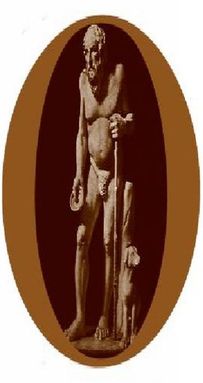
Copyright © 2015 Peter Tase & Sabahudin Hadžialić
Design: Sabi / Autors & Sabahudin Hadžialić. Design LOGO - Stevo Basara.
Freelance gl. i odg. urednik od / Freelance Editor in chief as of 2009: Sabahudin Hadžialić
All Rights Reserved. Publishers and owners: Peter Tase & Sabahudin Hadžialić
Whitefish Bay, WI, United States of America
Diogen pro kultura magazin (Online)
ISSN 2296-0929
Diogen pro kultura magazin (Print)
ISSN 2296-0937
Library of Congress USA / Biblioteka - Knjižnica Kongresa SAD
Contact Editorial board E-mail: [email protected];
Narudžbe/Order: http://www.diogenpro.com/diogen-all-in-one.html
Pošta/Mail USA: Peter Tase, 5023 NORTH BERKELEY BLVD. WHITEFISH BAY, WI, 53217, USA
Pošta/Mail BiH: Sabahudin Hadžialić, Grbavička 32, 71000 Sarajevo i/ili Dr. Wagner 18/II, 70230 Bugojno, Bosna i Hercegovina
Design: Sabi / Autors & Sabahudin Hadžialić. Design LOGO - Stevo Basara.
Freelance gl. i odg. urednik od / Freelance Editor in chief as of 2009: Sabahudin Hadžialić
All Rights Reserved. Publishers and owners: Peter Tase & Sabahudin Hadžialić
Whitefish Bay, WI, United States of America
Diogen pro kultura magazin (Online)
ISSN 2296-0929
Diogen pro kultura magazin (Print)
ISSN 2296-0937
Library of Congress USA / Biblioteka - Knjižnica Kongresa SAD
Contact Editorial board E-mail: [email protected];
Narudžbe/Order: http://www.diogenpro.com/diogen-all-in-one.html
Pošta/Mail USA: Peter Tase, 5023 NORTH BERKELEY BLVD. WHITEFISH BAY, WI, 53217, USA
Pošta/Mail BiH: Sabahudin Hadžialić, Grbavička 32, 71000 Sarajevo i/ili Dr. Wagner 18/II, 70230 Bugojno, Bosna i Hercegovina




